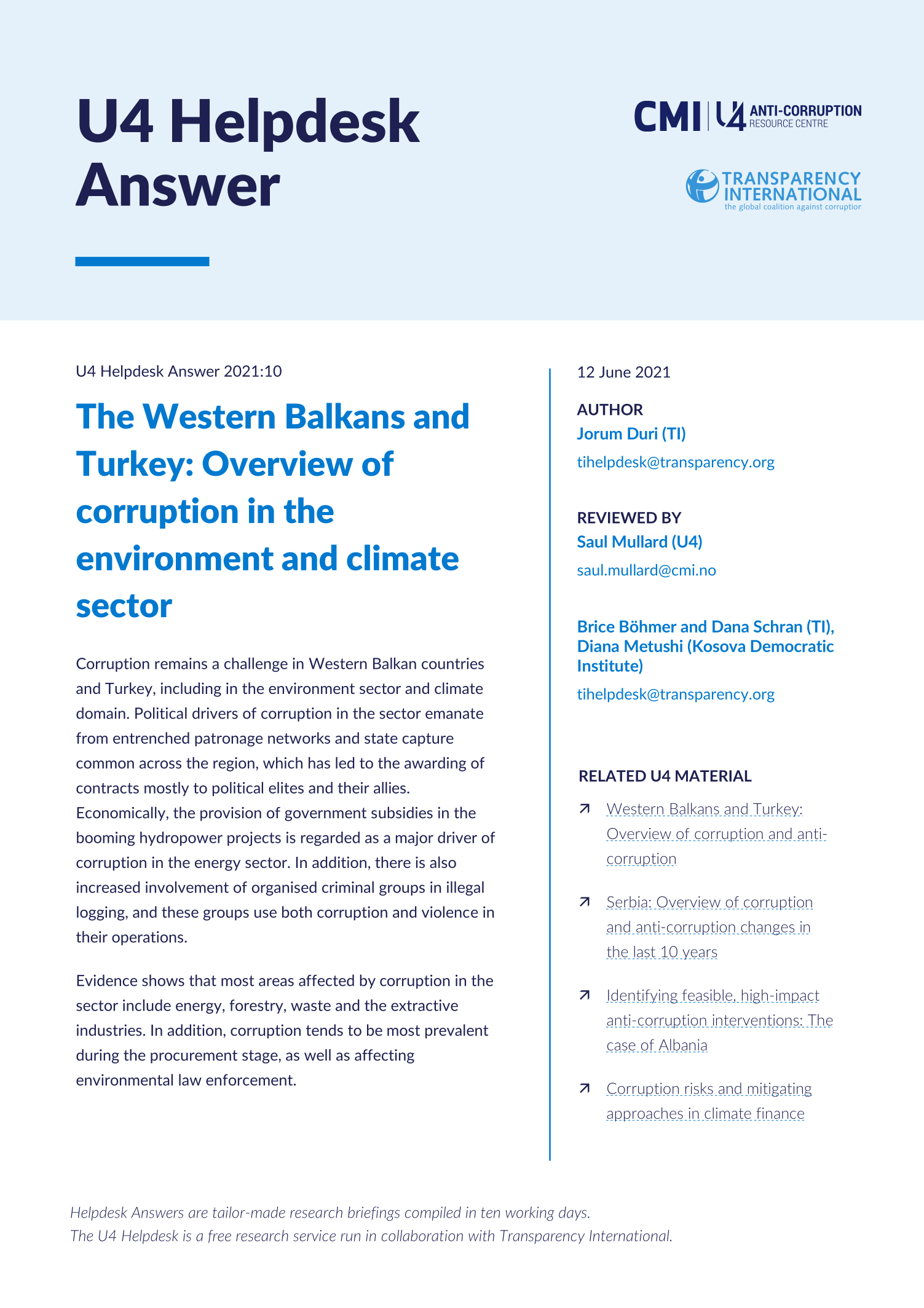Main points
- In 2016, Western Balkan countries and Turkey had an average Corruption Perceptions Index (CPI) score of 39.8 out of 100 – which then dropped to 37.8 in 2020 – indicating an increase in public sector corruption.
- Patronage networks deeply entrenched in political systems across the region have resulted in the corrupt awarding of contracts in the environment and climate sector to political elites and their allies.
- Poor governance around subsidies allocations in hydropower projects across the region exacerbated corruption in the energy sector, and evidence shows that most contracts are awarded to politically connected persons who are making huge profits from the subsidies.
- Evidence shows that most areas affected by corruption in the sector include energy, forestry, waste and extractives. In addition, corruption tends to be prevalent during the procurement stage, as well as in environmental law enforcement.



